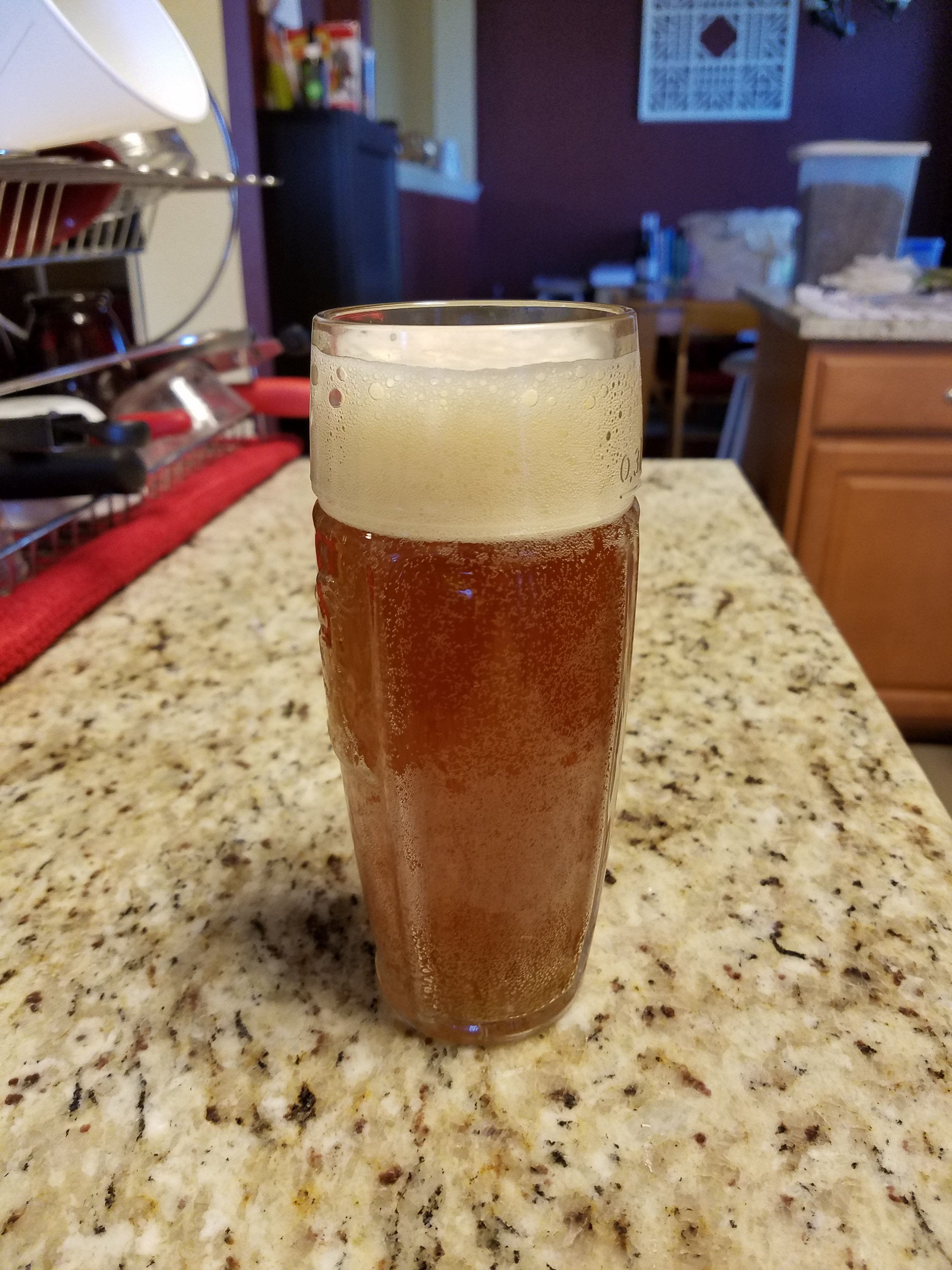My first and currently only batch of beer was made from 1/2 a can of Muntons Wheat Beer (a pre-hopped can of LME) with a pound of light DME added (for a 2.5 gallon batch). I bottled it about 10 days ago, so I haven't tasted it since then, but at bottling time, it seemed too bitter for such a supposedly low-hopped wheat beer. I don't like hops, so that was disappointing. The fermentation went well, kept around 68-70F, so I don't think anything went wrong there. I am just very sensitive to hoppiness I guess.
Anyway, I am considering the following recipe for using up the second half of the canned LME, hoping for more malt flavor to override the hops:
2.5 gallon batch:
1/2 can (2 lbs) Muntons Wheat LME (pre-hopped)
1 lb Briess traditional dark DME
1 lb Crisp chocolate malt (steeped)
Yeast: Munich Classic (dry)
I have all these ingredients on hand because I was already planning to use the dark DME instead of light in the second batch for comparison, but then I won the chocolate malt at a HB club raffle last night, so it just occurred to me to add that too. I also have a pound of light DME I could throw in if that would not be too much.
Alternatively, do you have any other suggestions for how to use this LME to make something less hoppy? Or is it a lost cause and I should just toss the second half of the canned LME?
Anyway, I am considering the following recipe for using up the second half of the canned LME, hoping for more malt flavor to override the hops:
2.5 gallon batch:
1/2 can (2 lbs) Muntons Wheat LME (pre-hopped)
1 lb Briess traditional dark DME
1 lb Crisp chocolate malt (steeped)
Yeast: Munich Classic (dry)
I have all these ingredients on hand because I was already planning to use the dark DME instead of light in the second batch for comparison, but then I won the chocolate malt at a HB club raffle last night, so it just occurred to me to add that too. I also have a pound of light DME I could throw in if that would not be too much.
Alternatively, do you have any other suggestions for how to use this LME to make something less hoppy? Or is it a lost cause and I should just toss the second half of the canned LME?




